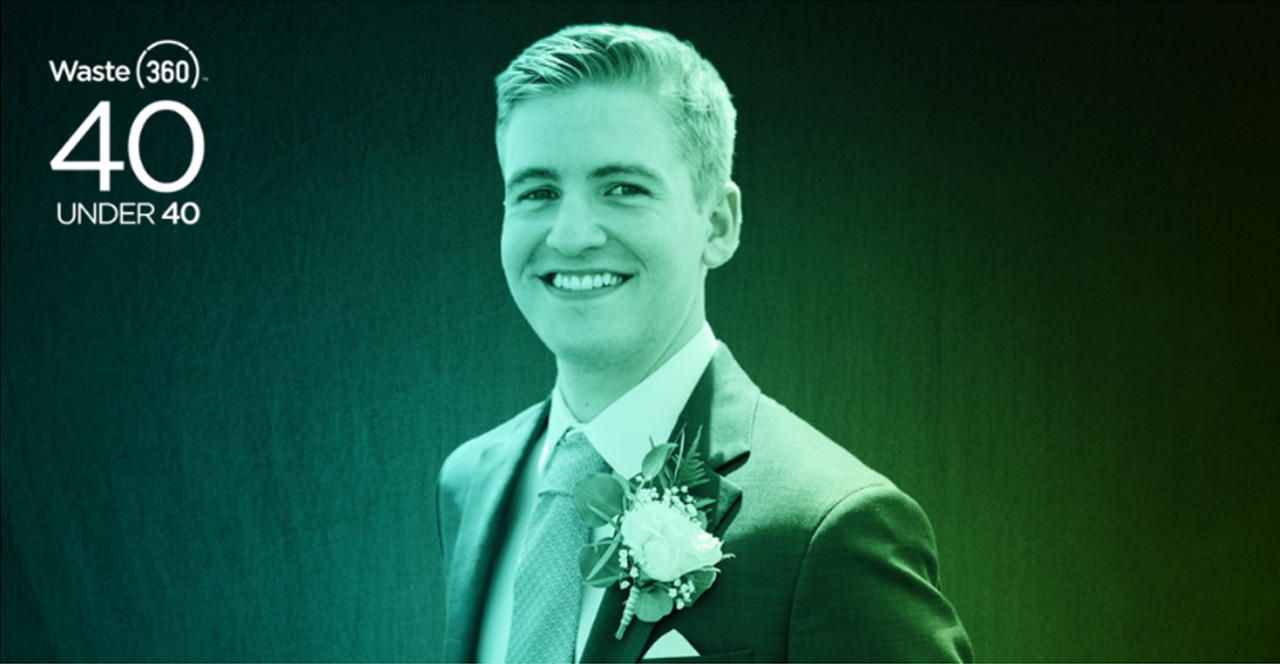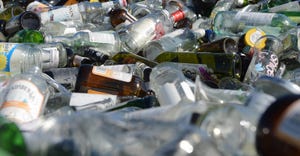Sam Rice's Focus on SCADA Systems Propels Landfill Operations
Sam Rice, senior project manager of SCS Engineers, is a highly esteemed individual working in the world of Supervisory Control and Data Acquisition or SCADA systems. His work has allowed numerous landfills to function not only more efficiently but also safer.

Sam Rice, senior project manager of SCS Engineers is a highly esteemed individual working in the world of Supervisory Control and Data Acquisition or SCADA systems.
The engineer is propelling both himself and his company forward in the waste industry by approaching every problem with a highly dedicated and unique perspective. His work has allowed numerous landfills to function not only more efficiently but also safer.
Committing attention to each project at hand and meeting the needs of each client, this 40 Under 40 award winner is someone worth celebrating.
Rice’s out-of-the-box thinking is a driving factor for his huge success, and with his new promotion, he hopes to inspire others to tackle problems they are prompted with in the same manner.
In a recent Q&A, Rice examines his own work process and talks us through how his successes with this problem-solving technique and allegiance to his clients are advancing him to new heights.
Waste360: What does your role entail?
Rice: At the time of my nomination, my job title was project manager, however, as of about a month ago it is now senior project manager. My work with SCS primarily consists of managing and directing a lot of our remote monitoring and control, or RMC, projects for a variety of different clients; small or large projects.
A lot of that is doing the initial designs or coming up with the format for these RMC or SCADA systems and managing those projects through development. I also work with our developers to make sure that everything is going to plan and staying on schedule; just general project management, ordering parts, and stuff like that.
Waste360: Can you tell us what the process of getting where you are now was like?
Rice: Yeah! So I graduated from college in 2018 with a bachelor's in engineering and concentrations in electrical and computer engineering. I was always really interested in technology and also environmentally conscious programs—trying to make sure that the environment is being taken care of.
When I first started, I ended up working in wastewater for a brief period and then moved over to SCS engineers in early 2019. So I actually started out as more of a programmer/electrician. I was doing really hands-on work developing the new software programs that we work with now and doing the actual physical installation.
Through the way that some of our projects went, I was exposed to a lot of managing projects, and when a spot opened up for a manager, SCS decided to promote internally rather than hire somebody new from outside. I was brought into that role proving my ability to manage projects. I demonstrated that I could, you know, handle the stress of a large project. The big project I was working on before I got that promotion actually went on to win a couple of awards for that SCADA system.
Waste360: Is there a big project that stands out to you?
Rice: I once worked on a project with a client that was a large full landfill SCADA system. It had everything from flares, tanks, and even pneumatic pump stations. I actually began working on that project as the developer building out the SCADA screens; doing all of the scripting and the background.
Eventually, our project manager had to step away from his role, and with no one else to fill in, my boss asked me to try and fill in the best I could and the rest is kind of history.
The project wound up going really well. It was sort of a pilot project for that client and ended up being one of the baseline systems that they now use as their template for a lot of their corporate enterprise systems.
Waste360: What’s the day-to-day like in your position? What does your work look like each day?
Rice: My day typically consists of communicating with clients, making sure that our projects are staying on schedule, and checking that we're meeting all of the client's needs.
Right now with a lot of the wait times on electronics we've gotta come up with creative solutions. Sometimes that means we end up using new technology just to be sure we are fulfilling a client's needs that couldn't be met through traditional means. That situation actually just came up earlier this week. A client needed a part in the next couple of months, but we can't get it from anyone until at least December. So yeah, a lot of my work is interfacing with clients to make sure that they're staying happy and that they're satisfied with the work that we are doing.
Another big part of what I do is really mentoring our other employees. “Coming up through the ranks,” so to speak, kind of gives me a unique perspective where I've got a lot of the hands-on development and installation skills that I can really utilize to help teach our newer or up-and-coming employees. I use this experience to empower them to make newer and better systems by thinking beyond just what we're doing now.
Waste360: What would you say is your favorite thing about what you're doing in these positions?
Rice: I've always been kind of a technology nerd. I've always been interested in the newest technology, whether it's, computers or AI, VR, all that kind of thing. So.
I think my favorite part is just being on the cutting edge of technology. We're always looking for new ways to do things; looking for the newest technology that's going to solve our client's problems even more efficiently than before. In my work we're really getting into the industrial Internet of Things, so we're monitoring everything and anything that you can think of. Whether that's using more of our traditional monitoring software and technology to read a 4 to 20mA sensor, or using small cellular nodes to pick up one or two remote points that are all battery or solar-operated. That's definitely my favorite part; seeing all this new technology and being able to work with it right away.
Waste360: What do your systems do to help your clients and furthermore what are the environmental impacts of these systems?
Rice: The hallmark quote for us is “work smarter, not harder.” Our goal is to improve the quality of life for our clients; making it easier for them to monitor all of their equipment.
For example in the past, it was somebody walking on the steep slope of a landfill with a pen and paper taking methane, temperature, or liquid level measurements and now we've got a piece of equipment that sits there and does that all automatically. And instead of getting one measurement a day, you're getting one every five minutes, or even every one minute. That greatly improves the quality of life for our clients. This also reduces health and safety risks, because you don't have to have somebody on a steep slope driving an ATV that could roll over if operated incorrectly.
Additionally, we help with monitoring flares so the second something goes wrong, our clients get a notification that something has gone wrong so they can jump on that right away to resolve the issue, which results in higher runtime and of course then means that they're staying in compliance more and reducing their greenhouse gas emissions.
Waste360: Can you recollect a time when you were able to see the impact you were having right in front of your eyes?
Rice: I'll give you 2 examples. The first of which was a few years ago. We were installing a brand new SCADA system for one of our clients, and one of the first things we noticed as we started the system was one of their pumps was just running full out all the time. We were able to let the client know that their pump station was constantly running and that the level wasn't really being drawn down. This brought to their intention something they needed to go out and investigate. They found out their discharge line was actually mostly clogged and were able to clean it out to bring everything back to normal operation. That was one case where we had an immediate impact. Helping clients identify issues that they didn't even know were going on helps to reduce runtime on pumps and last longer for them. This helps them reduce costs as well.
The second one was back in the midst of COVID. We were starting up another SCADA system that actually allowed our clients to operate their pump stations remotely. This was really big for them because they were located in the U.S. and the site they were managing is actually international. Obviously, during COVID it was really hard to travel— especially outside of the country—so we gave them the ability to operate their equipment without actually physically traveling to their facility.
Waste360: What is your problem-solving process?
Rice: Generally, when I am brought a problem to solve, it is typically in the form of a request for a proposal or something like that. The way I like to do it is by just focusing entirely on that, you know—shut down my e-mail—and just put my whole mind into focusing on that problem. I like to really think through it as much as possible; all the possibilities, all the monitoring options that we have, and do a little research. I like to see if there's anything else out there that maybe is even better than what we're doing.
And then just really dive into exactly what outcomes the client is looking for. SCS's goal has always been to make sure our clients are satisfied. We always want to put client satisfaction before our profit so it's really about putting yourself in your client's shoes and trying to come up with the best outcome for them.
About the Author
You May Also Like


.png?width=300&auto=webp&quality=80&disable=upscale)

